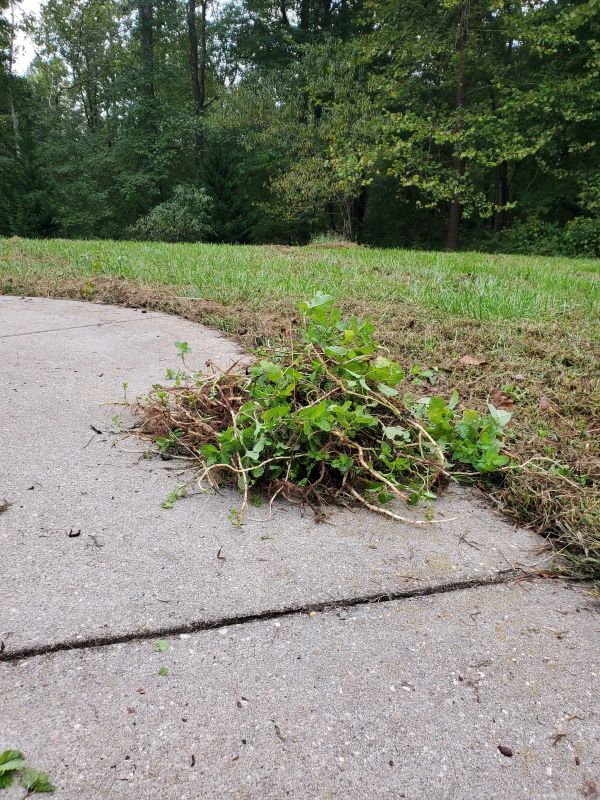Like a trick birthday candle that won't blow out, wild mint is almost impossible to stifle.
One homeowner learned exactly that and went to r/gardening for help after unsuccessful attempts to rid their yard of the invasive plant.

The post goes on to explain that after yanking out the roots, the mint was not to be deterred. A photo displays a large pile of their labor on the pathway next to the lawn, with the poster noting: "It's relentless.". Not wanting to use chemicals in fear of harming spring lilies, the gardener was left stumped.
A few solutions were offered, including creating a tea garden with lemon balm and chamomile, using boiling water, smothering it with cardboard (a method known as sheet mulching, according to Modern Farmer), simply embracing it, and mojitos.
While the location of the lawn was never clarified, it should be noted that wild mint (including a few related species or variants) is native to North America, though it is not native in some states in the South, according to the University of Texas' Lady Bird Johnson Wildflower Center. Other species that we usually think of as mints are non-native and often invasive, competing with local plants for water, soil, and nutrients.
Due to the aggressive nature of invasive species and the effects they have on ecosystems, being mindful about integrating and protecting native plants benefits all of us. Pollinators will be especially thankful for the food and shelter. Not to mention that pollinators are important to an estimated 30% of the human diet, according to the Ecological Society of America.
Transitioning to natural lawns is a money-saving change that requires less maintenance, water, fertilizer, and pesticides than monoculture lawns. The EPA reported that the United States uses nearly 9 billion gallons of water per day on landscaping.
Rewilding is truly a domino effect of awesome and if you're timid about making a big change, you can always start with a smaller portion of the yard and build from there. From clover lawns and vegetable gardens to wildflowers and xeriscaping, there are all kinds of options to choose from.
The invasive mint problem was greeted with very few remedies and a whole lot of shared misery.
"I made the mistake of planting some in my garden [...] 30 years ago. Never could get rid of it," one Redditor wrote empathetically.
"My only tip is to keep digging and keep digging deeper. You'll get it all out eventually," suggested another.
"Eradicate mint…that's hilarious. That's why you never put mint in the ground," commented a third.
Join our free newsletter for easy tips to save more and waste less, and don't miss this cool list of easy ways to help yourself while helping the planet.









